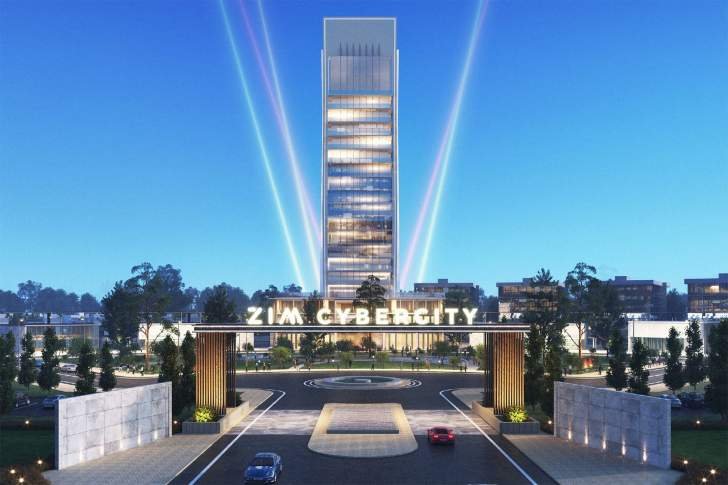A new planned development in Mount Hampden, Zimbabwe, called “cybercity” has attracted criticism for its focus on luxury high rises, malls, and a solar plant, as well as its use of blockchain technology and the creation of digital asset accounts. Critics argue that the development is a way for the ruling elite to avoid dealing with issues such as poverty and lack of infrastructure in the rest of the country. Additionally, there is little information available on the terms of investment and the project has not been approved by parliament.
The development has also attracted the interest of China, who have built the new parliament building in Mount Hampden at a cost of $140 million as a gift to Zimbabwe. Local Government Deputy Minister Marian Chombo stated that the cybercity is attracting interest from commercial, retail, and industrial investors, however, no specific investors have been named.
President Emmerson Mnangagwa, who came to power in a coup in 2017, has been trying to attract investment to revive the country’s struggling economy. However, the economy remains fragile, with a chronic lack of foreign currency making it difficult for major construction projects to move forward. Zimbabwe’s currency has plunged, interest rates are the world’s highest, and annual inflation is 244%.
Despite this, the government has offered tax breaks and expedited immigration permits for foreign investors, and at least 12% of 250 luxury villas to be built in the initial stage have already been bought in advance. However, critics argue that it is unlikely the development will ever be built, given the country’s current economic situation and the lack of infrastructure in the rest of the country.
In conclusion, while the Mount Hampden Cybercity development promises to be a shining new city, it also raises concerns about the priorities of the ruling elite and the potential for the project to further exacerbate existing issues of poverty and lack of infrastructure in the country.
